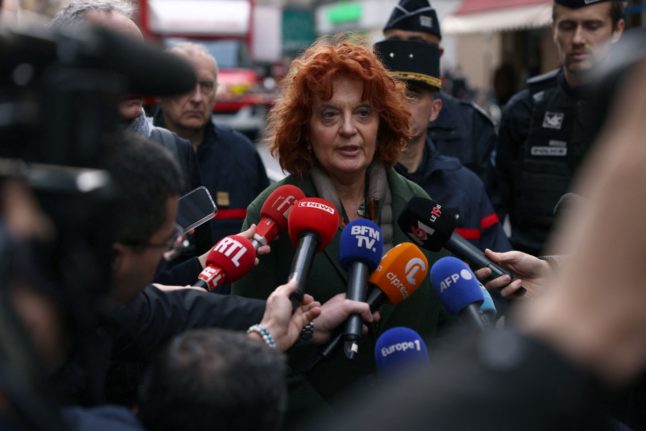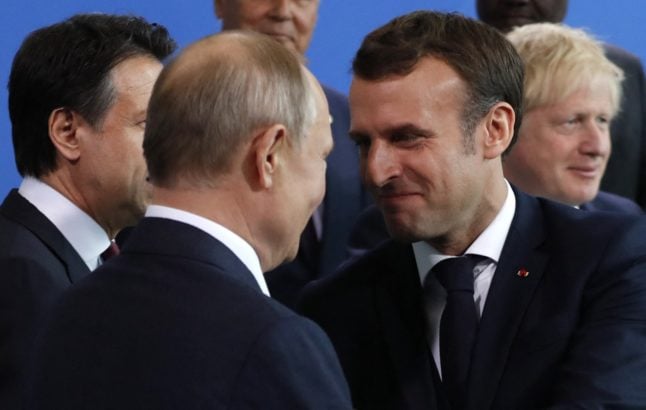French prosecutors reported in November that 60 such stars had been found in the capital and surrounding suburbs weeks into the war between Israel and Hamas, with the graffiti being interpreted as a threat to Jews.
A Moldovan couple was arrested in the case and their alleged handler, a pro-Russian Moldovan businessman, was identified, according to the source who has knowledge of the investigation and who declined to be named.
Moldova was a Soviet republic before its independence in 1991.
France’s international security service DGSI believes the operation was run by the FSB’s fifth division that undertakes international operations, the source said, quoting from a secret internal note that was first revealed by the Le Monde newspaper.
The FSB is the main successor agency to the Soviet Union’s KGB.
Paris prosecutor Laure Beccuau said during last year’s investigation that the daubings had been made at the “express demand” of an individual residing abroad.
The graffiti, which for some brought back memories of the Nazi occupation of Paris during World War II and the deportation of its Jews to death camps, were condemned across the political spectrum.
Elisabeth Borne, prime minister at the time, condemned what she called “despicable acts”.
The Union of Jewish Students of France said they were designed to mirror the way Jews were forced to wear the stars by the Nazi regime.
In the suburb of Saint-Ouen, the stars were accompanied by inscriptions such as “Palestine will overcome”.
Le Monde said the alleged FSB operation was part of a wider disinformation campaign that also targeted Poland, Spain, Germany, Romania and Austria.
In a recent note seen by AFP on Friday, the DGSI urged French police forces to report even “weak signs” of potential Russian “subversion”, such as vandalism, graffiti, posters, stickers and flyers, which are usually aimed at “amplifying divisions” in French society.
The war in the Middle East started after Hamas’s unprecedented October 7th attack that resulted in the deaths of about 1,160 people in Israel, mostly civilians, according to an AFP tally of official figures.
Hamas militants also took hostages, 130 of whom remain in Gaza including 30 presumed dead, according to Israel.
Israel’s relentless bombardment since has killed at least 29,514 people, mostly women and children, according to the latest count by Gaza’s health ministry.
France blames Russia for interference in several areas.
On Thursday, Defence Minister Sebastien Lecornu said France’s air force pilots had been threatened with attack by Russian forces during patrol missions in international air space.
His remarks were the latest in a string of French accusations of aggressive Russian behaviour, including alleged cyberattacks and propaganda directed at France.
President Emmanuel Macron’s government is a major supplier of weapons and aid to Ukraine, which has been fighting Russia’s invasion for the past two years.
Macron declared last month that Europe’s priority must be to “not let Russia win”.



 Please whitelist us to continue reading.
Please whitelist us to continue reading.
Member comments